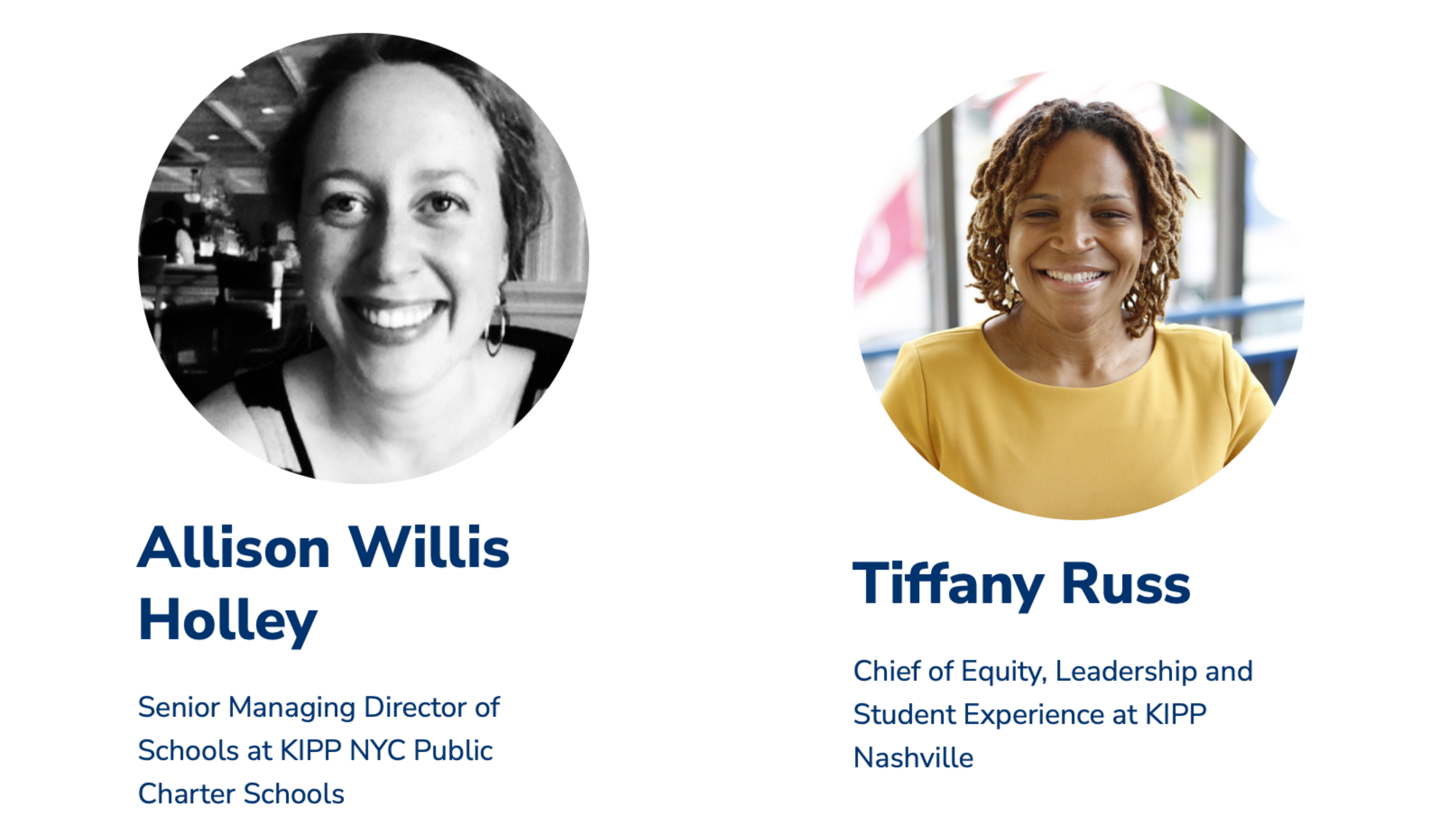Caitlin Churchill, Possip’s Community director, sat down with KIPP Leaders from across the country to learn how they use feedback from families and staff to equip exceptional leadership in their regions.
KIPP networks across the country are using Possip to gather family and staff feedback. We sat down with two leaders to learn how routine feedback is to strengthen leadership.

Tiffany Russ, Chief of Equity, Leadership and Student Experience at KIPP Nashville, and Allison Willis Holley, Senior Managing Director of Schools at KIPP NYC, agreed that the power of routine feedback enables their leaders by:
-
Regularly hearing about the day-to-day experiences of their people.
-
Using happiness as a metric of retention.
-
Providing affirming feedback to their staff.
-
Routine feedback surfaces reflective questions for your team.
-
Sharing feedback across multiple teams.
Scroll down to hear these comments in their own words!
1. Routine feedback allows leaders to regularly hear about day-to-day experiences of their people.
“I had been a principal for a long time and I had worked at KIPP NYC for 16 years and it was the first time that I felt like I was regularly hearing about the day-to-day experience, that wasn’t related to a large problem that we were trying to solve that had taken months to solve, or a quick one off. It felt like I was hearing about the student experience from the lens of our families in a way that felt really relevant and real.” –Allison Willis Holley, Senior Managing Director of Schools at KIPP NYC Public Charter Schools
2. Routine feedback allows leaders to see happiness as an important metric for retaining staff.
“We found [Possip data] to be pretty correlative – we saw a strong correlation between those who said yes and those we retain year-over-year… It gave principals and leaders a chance to get away from reviewing only teacher outcomes and what they were producing, but also know what they actually feel. Because a few principals have been blind-sighted by some really awesome teachers saying they can’t do it anymore. With the regional dashboard we can trend and ask, what’s popping up here and what can we do regionally to respond to this and allow principals some resources.” –Tiffany Russ, Chief of Equity, Leadership and Student Experience at KIPP Nashville
3. Routine feedback gives leaders affirming feedback to share with their staff.
“It is amazing to have a vehicle to be able to share affirming feedback. We’re all wired to hear the word feedback and jump to the negative side of our brain. It’s amazing to have a vehicle to share all the great things, and all of the gratitude and specific shoutouts and the really positive moments back with leaders. And for those leaders to be able to use that to share gratitude with the staff and buoy them through the rollercoaster that is a school year is really fantastic.” – Allison Willis Holley, Senior Managing Director of Schools at KIPP NYC Public Charter Schools
4. Routine feedback surfaces reflective questions for your team.
“[Possip] brings up some really healthy reflective questions. It’s bringing up questions around trust, it’s bringing up questions around responsiveness. Questions like, how do we view partnership with our families? The KIPP Foundation started this school culture and climate survey. … and one of the questions is around partnership with families and shared power. I think [Possip] is a tool that’s very in line with that desire to become a network of schools that really does co-create and partner with families. I think our schools that are most adept at the follow-up have families that are feeling really affirmed. – Allison Willis Holley, Senior Managing Director of Schools at KIPP NYC Public Charter Schools
5. Routine feedback enables access to data across across multiple teams.
“There are so many ways that my team uses this data. Our Managing Director of Leadership Development is able to take this data and think about what we need to put in principal training to ensure they understand the kind of feedback you get as a principal and what to do about it. We use the data in leading, hiring and retaining staff. … Our student culture and student support leaders are able to get more qualitative data. … They are able to get that data that would have normally been invisible, like to the level of one parent. Because Possip allows us to be solutions oriented.. It also allows for more regional follow-up and allows us to ask good questions to our leaders on different campuses.” – Tiffany Russ, Chief of Equity, Leadership and Student Experience at KIPP Nashville
The post KIPP Leaders on How Possip Data is Equipping Leaders in Their Work appeared first on Possip | Engagement Platform | School Feedback Survey.
No comments:
Post a Comment